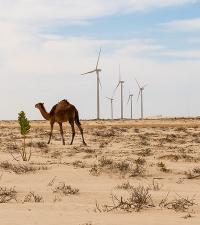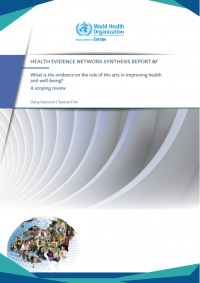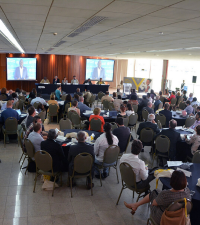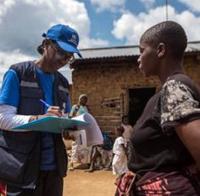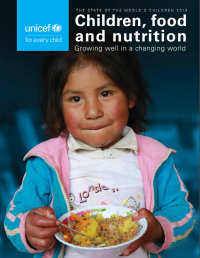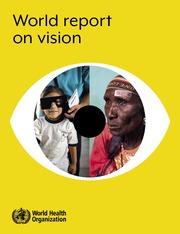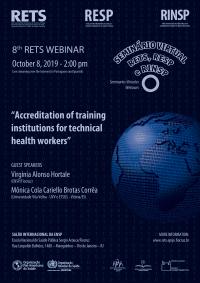You are here
News
-
11/29/2019 - Discover why the 2019 UN Climate Change Conference, known as COP25, is important and definitive for the fight against climate change and the future of our planet.
-
11/29/2019 - Every December 1, World AIDS Day is celebrated. Discrimination is an important barrier that prevents many from accessing health care. This year, the campaign aims to raise awareness, especially health workers, about the needs of young people and encourage them to participate in reducing stigma and discrimination towards people most vulnerable to HIV infection.
-
11/14/2019 - Más de 420 millones de personas viven con diabetes, dolencia que es la séptima causa principal de muerte y fuente de importantes de complicaciones costosas y debilitantes, como ataques cardíacos, derrames cerebrales, insuficiencia renal, ceguera y amputaciones de miembros inferiores. Un trabajador en un país pobre apenas puede comprar insulina para tratarse contra la diabetes; en uno rico, la tiene que racionar aún a riesgo de morir o sufrir una amputación. La ONU lidera un proyecto para que la industria produzca insulina más barata.
-
11/12/2019 - From before birth, to the end of life, taking to the dance floor or sketching a still life, can positively affect our health and even prove more cost-effective than conventional medical treatment, the World Health Organisation (WHO) found in a new study published on Monday (11/11). The arts are good for you! This report looks at: the performing arts; visual arts, design and craft; online, digital, and electronic arts; literature; and culture, to better understand their benefits to health
-
11/04/2019 - The World Health Organization relaunched, on November 1, 2019, the Global Index Medicus portal. GIM gives access to world literature on biomedicine and public health produced by (and in the context of) low-middle income countries. With interface translated into seven languages, including english, this portal offers integrated search to these five regional.
-
11/01/2019 - Experts, member countries, vaccine manufacturers and other partners from around the world met in Brasilia, Brazil, at the event it was organized by the Pan American Health Organization (PAHO) in conjunction with the Secretariat to Eliminate Yellow Fever Epidemics (EYE) of the World Health Organization (WHO), UNICEF and GAVI - the Vaccine Alliance. The Annual Partners Meeting of the EYE 2019 strategy, which began on October 28 and ended on October 30, addressed the achievements, challenges and the way forward. WHO Deputy Director General for Emergency Response, Ibrahima Socé Fall, insisted that the risk of outbreaks and the spread of yellow fever persists.
-
10/21/2019 - "Universal health coverage is a political choice", said Dr Tedros Adhanom Ghebreyesus, WHO Director-General. The Organization welcomed a new Inter-Parliamentary Union (IPU) Resolution on achieving Universal Health Coverage (UHC) by 2030, in october 17. The resolution, adopted at the IPU Assembly in Belgrade, Serbia, comes one month after heads of state agreed a high-level United Nations Political Declaration on UHC in New York. UHC is increasingly regarded as a cornerstone for sustainable global development as leaders and communities acknowledge that health is both a human right and essential to economic growth.
-
10/16/2019 - “An alarmingly high number of children are suffering the consequences of poor diets and a food system that is failing them,” the UN children’s agency (UNICEF) warned. According the report 'The State of the World’s Children 2019 - Children, food and nutrition: Growing well in a changing world', around 200 million children under-five are either undernourished or overweight, while one-in-three globally - and almost two-thirds of children between the fragile ages of six months to two years - are not fed food that nurtures proper development.
-
10/09/2019 - A staggering 2.2 billion people already suffer from eye conditions and visual impairment today, but the global need for eye care is set to increase “dramatically”, with lack of exercise a key factor, the UN health agency said on Tuesday, unveiling its first ever report on vision across the world.
-
10/07/2019 - The 8th RETS Webinar 'Accreditation of training institutions for technical health workers' will be held on October 8, 2019, at 2 pm (Brasília time), at the International Salon of the Sergio Arouca National School of Public Health (ENSP/Fiocruz), live transmission by RNP (in Portuguese and Spanish). At the event, held in partnership with the International Networks of National Institutes of Health (RINS) and Latin American Network of Public Health Training Schools and Centers (RESP), the researchers Virginia Alonso Hortale (ENSP/Fiocruz) and Mônica Cola Cariello Brotas Corrêa (University of Vila Velha and ETSUS-Vitória, Espírito Santo, Brazil) will present conceptual and operational aspects of the issue, discussing possibilities and challenges that involve the application of this strategy in the training of health technicians. The table will be coordinated by the International Cooperation coordinator of the Joaquim Venâncio Polytechnic School of Health (EPSJV/Fiocruz), Helifrancis Condé.

